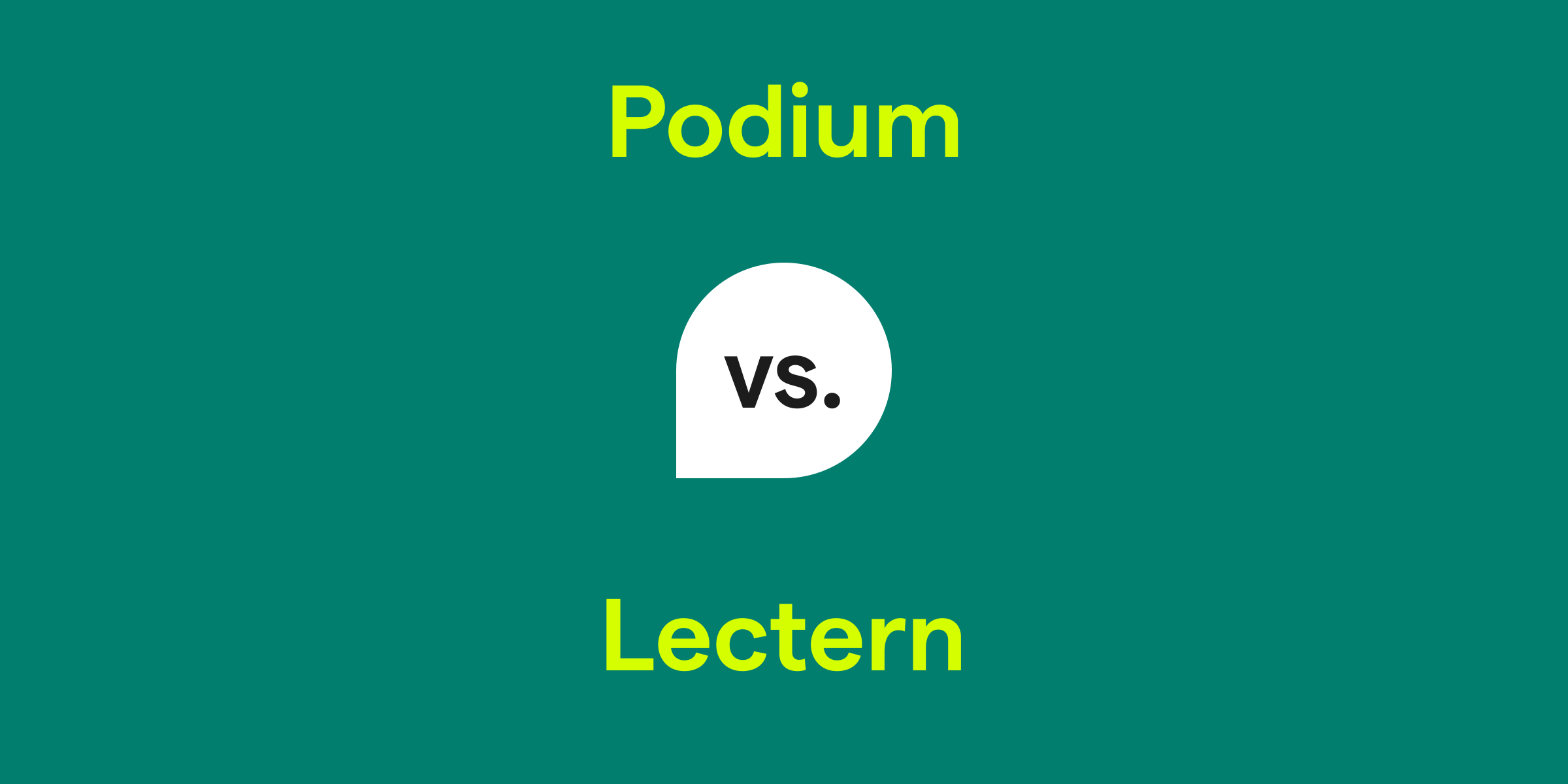Podium vs. Lectern: What's the Difference?
A podium is a platform upon which a speaker stands to elevate themselves above the level of the audience, enhancing visibility. Often found in auditoriums and stages, it serves as a raised area for conductors, orators, or performers. In contrast, a lectern is a reading desk with a slanted top that is designed to hold speaking notes or books. It is commonly used by presenters to rest their materials on while addressing an audience, often positioned atop a podium or on the floor at speaking engagements.

How do you use the word podium in a sentence?
The word podium is used to describe a platform that raises a person off the ground. This term is often used in the context of speeches and events where a speaker requires elevation to be seen by a larger audience. When organizing a formal ceremony, ensuring accessibility and visibility is key, which can be achieved by having speakers stand on a podium.
Examples of podium in a sentence
- The champion stood proudly on the top tier of the podium, as the national anthem played.
- During the panel discussion, the moderator asked the next speaker to approach the podium.
- The conductor stepped onto the podium, raised his baton, and the orchestra began to play.
How do you use the word lectern in a sentence?
The word lectern refers to a stand that holds notes or books for a speaker during a presentation or lecture. It is commonly used in contexts like educational settings, conferences, and religious institutions. The lectern is an essential piece of furniture that enables speakers to comfortably read their prepared materials while addressing an audience.
Examples of lectern in a sentence
- She adjusted the microphone before beginning her speech from the wooden lectern.
- The guest speaker placed his notes on the lectern and looked out at the expectant audience.
- Each candidate had a lectern from which they could address questions during the debate.
Podium and lectern definition, parts of speech, and pronunciation
Podium definition:
A podium is a dais or raised platform used to elevate the speaker above the surroundings, typically for visibility or emphasis.
Podium parts of speech:
Podium pronunciation:
The word podium is pronounced as /ˈpəʊ.di.əm/.
Lectern definition:
A lectern is a stand with a slanted top used to support a book, notes, or script in a convenient position for a standing reader or speaker.
Lectern parts of speech:
Lectern pronunciation:
The word lectern is pronounced as /ˈlɛktərn/.
A podium is a dais or raised platform used to elevate the speaker above the surroundings, typically for visibility or emphasis.
Podium parts of speech:
- Noun: The conference room was equipped with a state-of-the-art speaker system and a podium.
- Noun: He was too short to be seen over the podium, so he opted to speak from the floor.
Podium pronunciation:
The word podium is pronounced as /ˈpəʊ.di.əm/.
Lectern definition:
A lectern is a stand with a slanted top used to support a book, notes, or script in a convenient position for a standing reader or speaker.
Lectern parts of speech:
- Noun: Her notes were arranged on the lectern in the order she planned to cover the topics.
- Noun: Facing a large audience can be daunting, but the lectern provided a sense of security.
Lectern pronunciation:
The word lectern is pronounced as /ˈlɛktərn/.
Podium vs. lectern in a nutshell
Understanding the distinction between a podium and a lectern can be crucial for proper stage planning and presentation design. A podium elevates a speaker, providing visibility in larger venues, while a lectern is designed to hold speaking materials and can be placed on a podium or directly on the floor. While often used interchangeably in casual conversation, recognizing their specific purposes ensures effective communication and seamless event execution.
Get AI Writing Assistance Wherever You Type
Make sure your vocabulary is on point and every punctuation mark is in the right place, no matter where you’re working. Grammarly works across more than 1 million websites and apps so you can improve your writing without copying, pasting, or breaking focus.

More Commonly Confused Words
Interest piqued? Pore (not pour) over other commonly confused words to help your writing reach peak (not peek) performance.